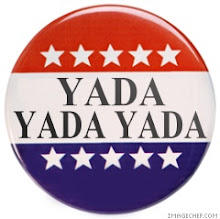I had to laugh and for several reasons when I read the CNN article about High School Students using their Instant messaging babble in school assignments. You'd think that the idea of condensed writing was new, but all that's really new is its use by untrained teens using phone connections. "Techno-spellings" as CNN erroneously calls the practice -- contractions such as B4 for before or u for you , do serve a purpose since typing a message on a silly little keyboard is tedious and slow, but there's nothing technological about knowing how to use a telephone and nothing "techno" about shorthand.
The practice of using standard abbreviations and codes, unbeknownst to the journalism majors at CNN and most adolescents, was in widespread use amongst telegraphers over 150 years ago and for all I know, semaphore users long before that. In fact the protocols were so extreme in the interest of keeping throughput high, that a layman simply wouldn't understand what was actually sent over the wires or later over the air even if they did know the morse code. Certain numbers or letters would stand for phrases and some of these, like 88 for "love and kisses," or QRN for electrical noise of natural origin, or QSL? for "can you hear me now?" still survive in Amateur radio.
What's new is the idea that the practice of wireless digital text messaging is new - it's older than I am. What's new is miniaturization and commercialization and a system designed so that people with no technical knowledge can work it. Nonetheless, jargon has always been with us and always will be and as long as it irritates English teachers, I'm all for it.
A good CW or Morse code operator ( here I co with the real techno-talk) can far outstrip the speed of a good text messager and it was demonstrated on the Tonight Show a while back. Although code is no longer a requirement for an Amateur license, many hams who still use it can send all day at 30 words per minute and some are much faster, but even those using voice communications or digital text use a jargon far more opaque and far less likely to be used with your cell phone or to accidentally find its way into that Sophomore "what I did last Summer" essay or book report.
Here's a snippet from a typical text conversation you might read using one of the many digital modes, like PSK31 that hams have been using for years: K9*** DE N4** QSL tnx fer return. yr RST559 QSB/QRM. My QTH FL FL grid EL97wb. FB QSO om 73 and hope to wk u agn on PSK. N4**. K
Not very new. Not very suitable for communications between mall rats and certainly not for an essay on Moby Dick, but fast, free and capable of spanning the globe instantly. If you can annoy your teachers with it, so much the better.
Friday, February 09, 2007
Subscribe to:
Post Comments (Atom)

3 comments:
Dude, do you know something about everything? You're boxing with Skip over Biblical history on my blog and giving an education on ham radios/Morse code here? Is there anything you don't know? :-)
He does indeed. That's why I check back here three or four times a day.
But, I was surprised to read that you delight in practices which might annoy English teachers. You so rarely screw up the language, that Cranky and others jump on it like locusts to a wheat field when they find that rare misspelling, or dangling preposition. I would have thought you'd have been an ardent advocate for E.B. White's The Elements of Style.
So, you continue to surprise, which is a good thing.
You are both too kind, but I have a handful of interests and those are the things I know about. Sievert is the one who knows all - just ask him.
One of my things is Amateur radio and the history of electronics. I have an Amateur Extra license and I'm working on a commercial radio license so that I can work on ship's radar and things like that.
I went through a long Egyptology infatuation and learned to read Hieroglyphics after a fashion and I think that if I had it to do all over again, I would have been an archaeologist.
I do apologize for getting sucked into another Sievert game. He haunts at least a hundred blogs and makes then a forum for his economic theories about wealth redistribution, the rule of Technocrats and the elimination of money. Other proponents of this dogma share my irritation with him too it seems. Like many amateur "scholars" he latches on to an authority he can use to further his ideas and prejudices and shuts his mind, such as it is, to anything else.
Oh yes, English teachers. Of course there are great ones, but I've had far too many whose purpose is to squeeze the life and creativity out of anyone who loves language, as though English were some accounting system. I don't think I ever got better than a C- in any English course and usually worse.
Post a Comment